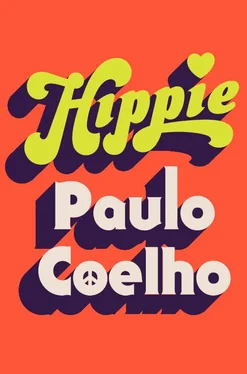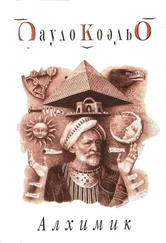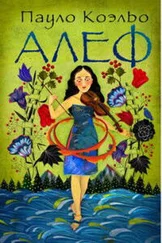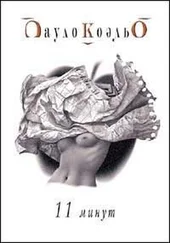Rayan turned around to face the one who appeared to be the boss—an older man, with wrinkles on his face, who’d looked on silently.
“We’re from different tribes, but we’re tribes that fight against the same thing. We’ll finish and leave. We’re not your enemies.”
The boss, it appeared, had difficulty talking, since he stuck an amplifier to his neck before responding.
“We don’t belong to any tribe” came the voice of the metallic instrument. “Get out of here now.”
It seemed as if the next moment would never end, as the women looked the strangers in the eyes, the men weighed their options, and those who had just arrived waited in silence, except for one person who turned to the restaurant owner and screamed.
“Disinfect these chairs once they’ve left. They must have brought the plague with them, venereal disease, who knows what else.”
The rest of the people there seemed not to pay any attention to what was happening. Perhaps one of them had summoned the group, someone who took the simple fact that there are free people in the world as a personal affront.
“Get out of here, you cowards,” said someone else who had just arrived, a man with a skull stitched into his leather jacket. “Head straight and in less than a mile you’ll find a Communist country where you’ll no doubt be welcome. Don’t come around here with your bad influence on our sisters and our families. We’re Christians, our government doesn’t allow trouble, and we respect others. Stick your tails between your legs and get out of here.”
Rayan flushed red. The Indian man seemed indifferent, perhaps because he’d watched scenes like this before, perhaps because Krishna taught that no one should flee when he finds himself before the battlefield. Karla shot a look at the men with their shaved heads, especially the one to whom she’d remarked that they weren’t done eating. She must have been bloodthirsty now that she’d discovered the bus trip was less interesting than she’d imagined.
It was Mirthe who grabbed her purse, took out what she owed, and calmly placed it on the table. Then, she walked to the door. One of the men barred her; once again there was a confrontation that no one wanted to see turn into a fight, but she pushed him—without politeness and without fear—and continued on her way.
The others got up, paid their portions of the bill, and left—which, in theory, meant they truly were cowards, capable of facing a long journey to Nepal but only too eager to run at the first sign of any real threat. The only one who seemed ready to take the group on was Rayan, but Rahul grabbed him by the shoulders and dragged him out, while one of the men with the shaved heads stood by opening and closing his penknife.
The two French travelers, father and daughter, also got up, paid their bill, and left with the others.
“You can stay, sir,” the boss told him in the amplifier’s metallic voice.
“I can’t, actually. I’m with them, and it’s a disgrace what’s going on here, in a free country, with beautiful landscapes. The ultimate impression we’re going to have of Austria is still the river splitting the rocks, the Alps, the beauty of Vienna, the magnificent Melk Abbey. A group of no-good…”
His daughter grabbed him by the arm as he continued talking.
“…who don’t represent this country will be promptly forgotten. We didn’t come all the way from France for this.”
Another man came from behind and punched the Frenchman in the back. The British bus driver stood between the two with eyes like steel—he stared at the boss without saying a word; there was no need, because his presence at that moment seemed to fill everyone with fear. The Frenchman’s daughter began to scream. Those who were at the door began to turn back, but Rahul stopped them. The battle had been lost.
He walked back in, grabbed father and daughter by the arms, and pushed them all out the door. They walked toward the bus. The driver was the last to leave. He didn’t take his eyes off the leader of that gang of thugs, he showed no fear.
“Let’s get out of here, go back a few miles, and sleep in some other town.”
“And run away from them? Is that what we’ve come all the way here for, to run at the first sign of a fight?”
The older man had spoken up. The young girls looked petrified.
“That’s right. Let’s run,” said the driver as the bus pulled forward. “I’ve already run from all sorts of things the few times I’ve taken this journey. I don’t see any cause for shame in that. Worse would be if we woke up tomorrow with the tires slashed, unable to continue our journey because I only have two spares.”
They made it to the town. They parked on a tranquil-looking street. Everyone was tense and shook up from the episode back at the restaurant; but now they were a group, capable of fending off any act of aggression. Still, they decided to sleep inside the bus.
They tried, making a great effort, to fall asleep, but two hours later bright lights began to illuminate the interior of the vehicle.
POLIZEI.
One of the policemen opened the door and said something. Karla spoke German and explained to everyone that they were to leave their stuff behind and step off the bus, wearing only the clothing on their body. At that time of night the air was freezing, but the police—men and women—refused to let them grab anything. They stood trembling with cold and fear, but no one seemed to care.
The police entered the vehicle, opened bags, backpacks—emptied everything onto the floor. They discovered a water pipe, generally used for smoking hashish.
The object was confiscated.
They asked everyone for their passports. They examined them carefully with their flashlights, saw the entry stamps, studied each page for a sign they were falsified—they would first shine their flashlights on a person’s passport photo and then on his face. When they came to the “adult” girls, one of the policemen went to his car and radioed somewhere. He waited awhile, nodded, and then walked back to the two girls.
Karla translated.
“We have to take you to the office of child services, and your parents will be coming soon. Soon, well, perhaps two days or perhaps a week, depending on whether they can find plane or bus tickets—or rent a car.”
The girls were in shock. One of them began to cry, but the policewoman carried on in her monotone voice:
“I don’t know what you’re trying to do and I don’t care. But you’re not going any further. I’m amazed you’ve made it across so many borders without anyone noticing you’d run away from home.”
She turned to the driver.
“Your bus could be impounded for parking illegally. The only reason I’m not going to do that is because I want to see you gone as soon as possible, as far away as possible. Didn’t you notice right away they were underage?”
“I noticed their passports said something else, different from what you’re suggesting now, ma’am.”
The policewoman was about to continue, explaining how the girls had forged documents, that you could see they were underage, that they’d run away from home because one of them claimed that in Nepal they could find much better hashish than what they had in Scotland—at least that’s what was written in the file that had been read back through the radio. Their parents were desperate. But she decided to leave the conversation there, the only people she needed to explain herself to were her superiors.
The police confiscated the girls’ passports and asked the girls to follow them. The girls started to protest, but the policewoman in charge didn’t pay them any mind—neither of them spoke German, and the other police, though they likely knew English, refused to speak any other language.
Читать дальше











